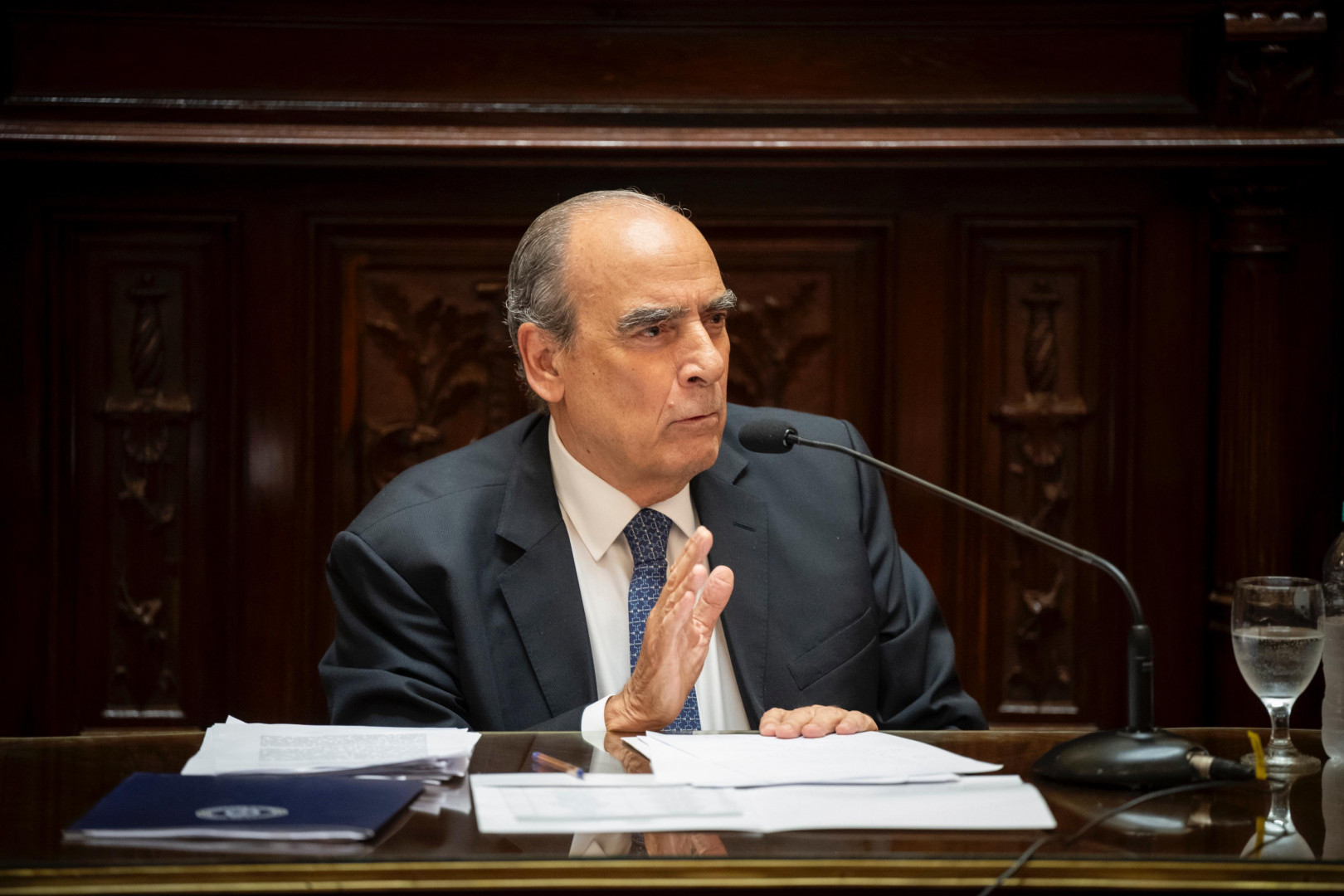The Chief of Staff presented the management report No. 141 in the Senate
Guillermo Francos: "We have established solid foundations for Argentina’s growth and development"
Guillermo Francos, the Chief of Staff, presented his first management report in the Chamber of Senators of the Nation, as required by the National Constitution. During his initial speech, Francos emphasized: "We are approaching our first year in government, marked by firm decisions, deep transformations, and significant management that have guided Argentina toward a future of growth, development, and freedom."
The Chief of Staff added that the current administration has succeeded in organizing “the macroeconomic situation and establishing solid foundations for Argentina’s growth and development.”
Francos arrived at the National Congress at 9:30 AM, where he was welcomed by the Senate President, Victoria Villarruel, who invited him to the chamber to begin his presentation.
Once there, Francos started his speech, in which he spent an hour and a half reviewing the main achievements of the administration, covering areas such as the Presidency, the Chief of Staff, Economy, Human Capital, Health, Foreign Relations, Justice, Defense, Deregulation and State Transformation, Security, and the Central Bank of Argentina (BCRA).
In this context, the Chief of Cabinet stated: “Without yielding, we dismantled an oversized, corrupt state that, for many years, was a machine of obstruction that suffocated those who work, invest, bet on the country, and dream of developing their life project in freedom.”
He then provided a detailed breakdown, area by area, of the progress made by the current administration, highlighting that "we are fighting within the state to control public spending and make it more efficient."
"This effort," added Francos, "has allowed us to reduce public spending by 7% and recover the fiscal surplus that was lost without the need for issuance."
During an eight-hour meeting, Francos answered questions from 25 senators across different parties, in addition to the 1,093 questions he responded to in writing in his report.
At another point, Francos described the achievement in inflation control as "impressive," stating: “From an unsustainable daily inflation rate of 1%, we reached October with a figure that, for the first time since 2021, fell below 3% and stood at 2.7%.”
Additionally, Francos assured that there has been "a clear recovery in economic activity" in recent months and provided examples: "In exports, October saw a 30% increase compared to the same month last year, while imports grew by 4.9%, and the trade balance showed a surplus of 888 million dollars, maintaining the positive trend that began in December 2023."
"Regarding industry, in September, activity grew by 2.6% on a seasonally adjusted basis compared to the previous month, and in August, it registered a 1.8% increase compared to July."
Concerning deregulation measures, the Chief of Cabinet highlighted the repeal or simplification of over 110 regulations. "Additionally, we ended discretionary import controls, eliminated tariffs, and reduced export taxes," he detailed.

He explained that "with the DNU 70, we repealed national regulations that were only hindering productive activity," while "with the Bases Law, we ensured more freedoms for the private sector to invest in the country's development."
In another part of his speech, Francos was firm in the the government's intention to privatize companies such as Belgrano Cargas. He also stated: "We will move forward with the privatization of Aerolíneas. We are not willing to finance with all Argentinians' money a company with an operating deficit close to 400 million dollars, whose services are used by only a tiny portion of the population."
Regarding the implementation of the Large Investment Incentives Regime (RIGI), Francos declared that "it represented a huge and concrete change that guarantees conditions and builds trust for those willing to bet on Argentina," and provided as an example that, since its enactment, the government already has "six major projects confirmed, totaling 7.8 billion dollars, located in Mendoza, Salta, Catamarca, San Juan, Neuquén, and Río Negro."
When responding to senators' questions, Francos emphasized the need to "rethink the pension system," and went further: "The tax system must be organized with much more simplicity. We lose investments in Argentina due to our tax system, and those investments are won by our neighbors."
The Chief of Cabinet also responded to inquiries regarding the Federal Revenue Sharing system, stressing the need to "find a mechanism that allows us to create a much fairer system between national and local taxes."
Finally, after thanking the senators for their presence, he stated: "Under the leadership of President Milei, we have managed to stabilize the economy, achieve fiscal surplus, and put an end to the scourge of inflation that suffocated Argentinians for so many years," and concluded by asserting that "every decision made aims to ensure a free Argentina, free from the ties of the past, and to finally project a country that looks toward the future."